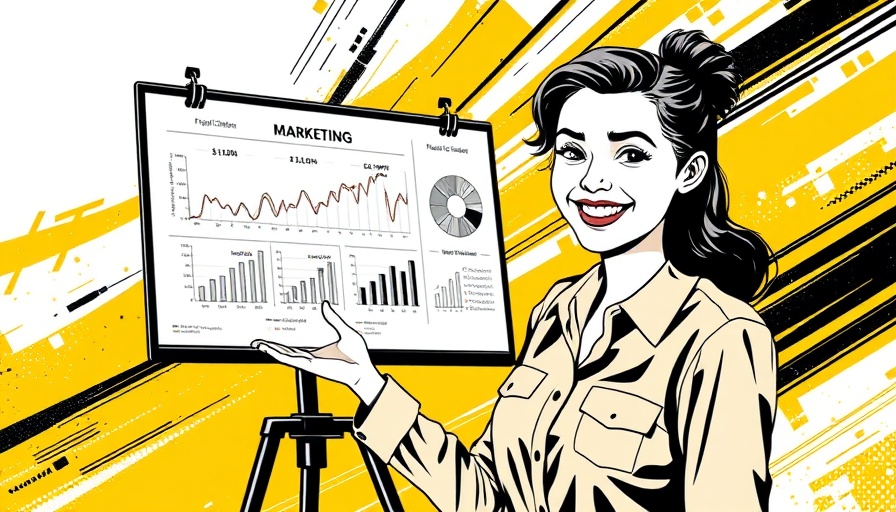
Understanding AI's Impact on Marketing Skills
In an era where technology is evolving at an unprecedented pace, the marketing field stands as a prime example of this transformation. According to a recent study by Indeed, marketing roles are now ranked fourth in exposure to generative artificial intelligence (GenAI), highlighting that 69% of the skills in this sector are on the verge of shifting towards hybrid human-AI workflows.
Why Marketing Is at the Forefront of AI Transformation
The analysis conducted evaluated nearly 2,900 unique work skills against U.S. job postings, revealing that marketing professionals face one of the highest levels of potential disruption by AI technologies. This shift is not merely a wave of the future; it's a tangible forecast reflecting how critical AI integration will be for this industry. Close behind fields like software development and accounting, marketing’s vulnerability stems from its reliance on cognitive, screen-based tasks that are often repetitive and data-driven, making them ripe for AI automation.
Are Marketing Skills Safe from AI Disruption?
The study paints a picture where many marketing-related tasks are poised for 'hybrid transformation.' This means that AI will handle routine executions – drafting emails, generating reports, analyzing data – while human marketers oversee these processes to inject critical strategic judgment. Communication skills seem especially at risk; the report indicates that AI can seamlessly retrieve information and assist in drafting, yet human insight will be indispensable to guide overarching strategy and creativity.
What Skills Are Most Vulnerable?
According to Indeed's GenAI Skill Transformation Index, the skills facing the highest risk of transformation include administrative tasks and text processing. It’s noteworthy that tasks requiring higher-level problem-solving are at risk too, albeit with a nuanced difference: while routine aspects can be automated, the final touch of expertise and creativity must come from marketing professionals. In fact, administrators who only rely on AI for communication risk losing their edge in an increasingly competitive landscape.
The Importance of Reskilling in the New AI Era
As GenAI continues to mature, the pressing question remains: how should marketing professionals adapt? The findings indicate that while 26% of jobs face significant changes due to AI, the true impact will depend on companies’ adoption and their commitment to reskilling. Marketers must now invest in upskilling to ensure that their work retains a competitive advantage. Developing skills that complement AI – such as strategic oversight, creative innovation, and advanced analytical thinking – can position professionals to thrive alongside these new technologies.
Looking Ahead: Marketing’s Future with AI
The employment landscape is certainly evolving. As AI influence surges, the marketing field must embrace a paradigm shift towards enhanced human-AI collaboration. While some may fear that tools like AI herald job obsolescence, the reality is more nuanced. Marketing professionals, instead of resisting change, should focus on how to leverage AI to amplify their strengths and differentiate their skill sets.
Conclusion: Preparing for a Hybrid Future
Ultimately, the report underscores a critical takeaway: marketing roles will continue to adapt and evolve as technology advances. By welcoming AI into their workflows and recognizing the vast potential it offers for operational efficiency, marketing professionals can not only preserve their roles but enhance their contributions in ways that were previously unimaginable. Preparing for this evolutionary leap will require a balanced approach — embracing AI’s capabilities while nurturing the irreplaceable human elements that drive success.
 Add Row
Add Row  Add
Add 




Write A Comment